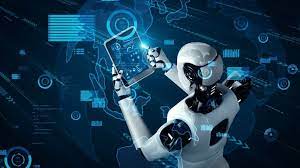In the fast-paced world of currency trading, technology has become an indispensable tool for traders seeking an edge in the market. Among the latest advancements is the proliferation of Forex robots, automated systems forex robot to execute trades on behalf of users. These robots, also known as expert advisors (EAs), have garnered significant attention in the financial community for their potential to streamline trading processes and generate profits with minimal human intervention.
What are Forex Robots?
Forex robots are software programs that utilize complex algorithms and mathematical models to analyze market data and make trading decisions. These algorithms are often based on technical indicators, price action patterns, and other trading strategies. Once configured with specific parameters, the robot can automatically execute buy or sell orders in the Forex market, 24 hours a day, 5 days a week, without the need for human supervision.
How Forex Robots Work
Forex robots operate on the principle of algorithmic trading, wherein predefined rules and criteria dictate trading actions. These rules are typically based on historical data analysis and backtesting to identify patterns and trends that may lead to profitable trades. Once deployed, the robot continuously monitors the market in real-time, scanning for trading opportunities based on its programmed parameters.
When a favorable trading setup is identified, the robot will execute the trade according to its predefined instructions. This process can happen within milliseconds, allowing robots to capitalize on fleeting market opportunities that may elude human traders. Additionally, Forex robots can manage multiple trades simultaneously across different currency pairs, further optimizing trading efficiency.
Benefits of Forex Robots
- Emotion-Free Trading: One of the primary advantages of Forex robots is their ability to execute trades without being influenced by emotions such as fear or greed. Human traders often fall victim to emotional biases, leading to impulsive decisions and trading errors. Robots, on the other hand, remain disciplined and objective



